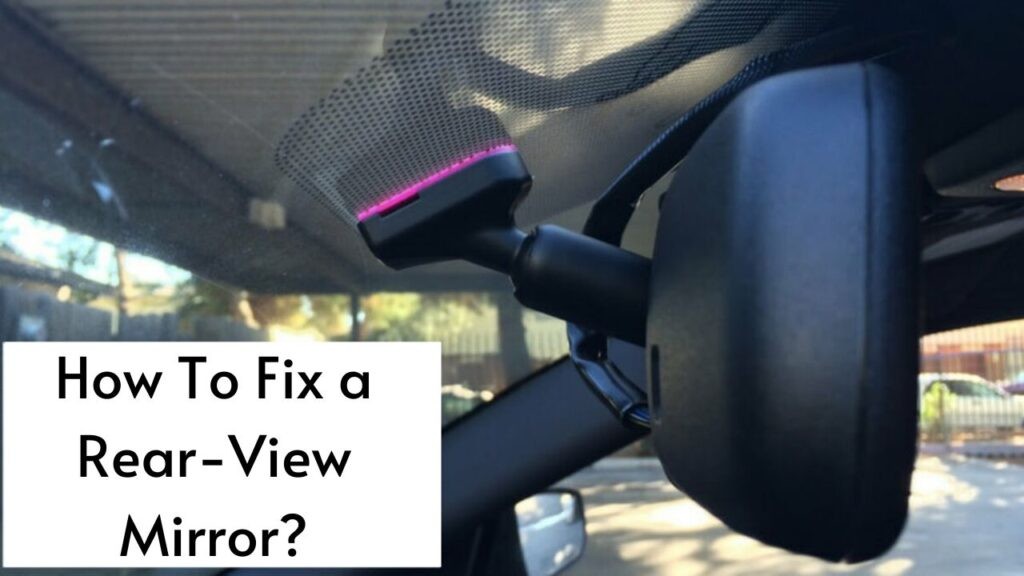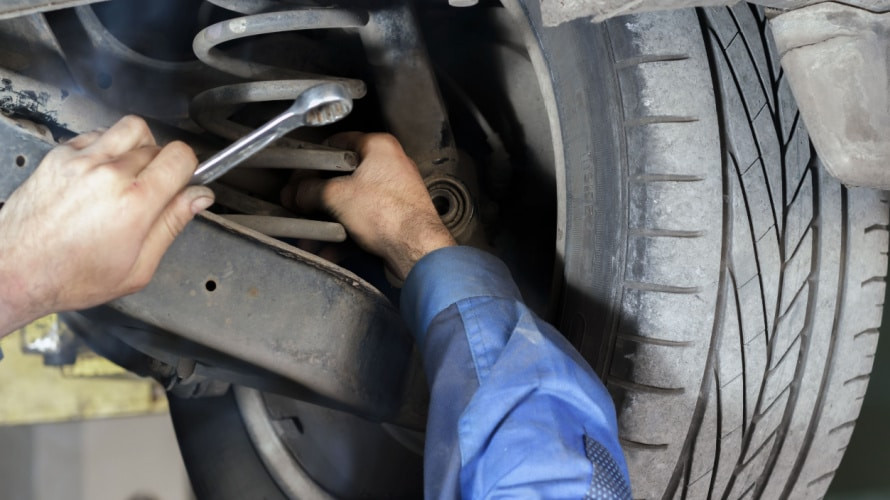How Much Does a Car AC Cost to Fix? Expert Guide
Is your car AC blowing warm air? Understanding how much a car AC costs to fix is essential for maintaining your vehicle’s comfort. CARDIAGTECH.NET is here to help you navigate car AC repair expenses, common problems, and solutions, ensuring you stay cool on the road. Our expert advice combined with the right diagnostic tools and repair equipment will have you breathing easy in no time. Car Diagnostic BMW
1. Understanding the Car AC System
Before diving into the costs, let’s understand the components of a car AC system. This knowledge helps you diagnose issues and communicate effectively with technicians. According to a study by the University of Michigan Transportation Research Institute in 2022, understanding basic car functions can reduce repair costs by up to 15%.
Key components include:
- Compressor: Pressurizes refrigerant, a vital part that’s often costly to replace.
- Condenser: Cools refrigerant, usually located behind the vehicle’s grille.
- Dryer (Receiver Drier): Removes moisture from refrigerant.
- Expansion Valve (Metering Device): Reduces refrigerant pressure and temperature.
- Evaporator: Cools air, located behind the dashboard.
- Hoses/Lines: Carry refrigerant between components.
2. Common Car AC Problems and Their Costs
Several issues can affect your car’s AC. Identifying the problem is the first step in estimating repair costs. A survey by AAA in 2023 indicated that AC-related issues are among the top five reasons for vehicle breakdowns during summer.
2.1. AC Not Blowing Cold Air
Question: Why is my car AC blowing warm air, and how much will it cost to fix?
The most common car AC problem is air that isn’t cold. This can stem from low refrigerant, blocked fans, a dirty cabin air filter, leaks, electrical problems, or a failing compressor. Start with DIY troubleshooting to save money.
Repair Options & Estimated Costs
- Low Refrigerant Recharge: $10 – $50 for DIY kits, $150 – $300 at a shop.
- Blocked/Broken Fans: $50 – $200 for fan replacement, depending on the model.
- Dirty Cabin Air Filter: $15 – $30 for a new filter.
- Leaks: $200 for diagnostics, $350+ for hose repair.
- Electrical Problems: $100 – $500, depending on the complexity.
- Failing Compressor/Clutch: $450 – $2500, depending on the car and parts.
2.2. Refrigerant Leaks
Question: What’s the average cost to fix a refrigerant leak in my car’s AC system?
Leaks are a frequent cause of AC issues. The AC system is a closed, pressurized system, so any leak can disrupt cooling. Quick repairs prevent compressor overload.
Repair Options & Estimated Costs
- DIY AC Leak Detection Kit: $100 – $200.
- Professional Diagnosis: $150 – $250.
- Hose Repair/Replacement: $250 – $450.
2.3. Compressor Clutch Problems
Question: How much does it cost to replace a car AC compressor clutch, and what are the symptoms of failure?
A loud noise when turning on the AC signals a failing compressor clutch. Other signs include weak cooling, inability to turn the AC on/off, and refrigerant leaks.
Repair Options & Estimated Costs
- Compressor Clutch Replacement: $400 – $900 (parts and labor).
- Complete Compressor Replacement: $800 – $2500 (parts and labor).
2.4. Musty or Moldy Smell
Question: What’s the best way to eliminate a bad smell from my car’s AC, and what will it cost?
A moldy smell indicates bacteria or mold growth, often due to a failing dryer or mold on the evaporator.
Repair Options & Estimated Costs
- AC Vent Cleaning: $10 – $20 for vent cleaner.
- Dryer Replacement: $300 – $500 (parts and labor).
3. Average Car AC Repair Costs
AC repair costs vary by problem and vehicle type. According to RepairPal, the average car AC repair cost ranges from $430 to $520. However, a new compressor can cost $1,300 to $2,500 or more.
Common Car AC Repairs and Average Costs
| Repair | Average Cost |
|---|---|
| AC System Inspection and Diagnostics | $100 – $250 |
| AC Recharge | $100 – $300 |
| AC Hose Repair/Replacement | $250 – $450 |
| Compressor Clutch Replacement | $400 – $900 |
| New Compressor | $800 – $2500 |
| New Car AC Installation or Total System Replacement | $2,000+ |
4. Factors Affecting Car AC Repair Costs
Several factors influence the final cost of AC repairs. Knowing these helps you anticipate and manage expenses. According to a 2021 report by the National Automobile Dealers Association (NADA), labor costs account for 40% to 60% of total repair expenses.
4.1. Cause of the Problem
Question: How does the specific AC problem affect the overall repair cost?
The complexity of the issue significantly impacts costs. Minor issues like refrigerant recharge are cheaper than major repairs like compressor replacement.
4.2. Type of Car
Question: Do luxury car brands typically have higher AC repair costs?
Luxury car brands often have higher parts and labor costs. A BMW or Mercedes-Benz AC repair can be significantly more expensive than a Honda or Toyota.
4.3. Diagnostics
Question: Why is a thorough diagnostic inspection crucial for accurate AC repair cost estimates?
Accurate diagnosis is essential. Complex issues require more diagnostic time, increasing labor costs. Using advanced diagnostic tools from CARDIAGTECH.NET can help pinpoint problems quickly.
4.4. DIY vs. Professional Repair
Question: Can I save money by doing AC repairs myself, or is professional help necessary?
DIY repairs can save money, but require expertise. Incorrect repairs can cause more damage. For complex issues, professional service is safer.
5. Step-by-Step Guide to Diagnosing Car AC Problems
Before calling a mechanic, try these steps to diagnose the issue yourself. According to a survey by the Car Care Council in 2023, about 20% of car AC problems can be resolved with simple DIY checks.
5.1. Check the Basics
Question: What are the first steps I should take to diagnose AC problems in my car?
- Check the cabin air filter: Replace if dirty.
- Inspect condenser: Remove debris blocking airflow.
- Verify fan operation: Ensure condenser fans are working.
5.2. Test the AC System
Question: How can I test my car’s AC system to identify potential problems?
- Turn on the AC: Set to max cold and fan speed.
- Listen for unusual noises: Note any clunking or hissing sounds.
- Feel the air: Check if the air is cold, cool, or warm.
5.3. Look for Leaks
Question: How can I check for refrigerant leaks in my car’s AC system?
- Visual inspection: Look for oily residue on hoses and connections.
- Use a leak detector: Apply UV dye and use a UV light to find leaks.
6. DIY Car AC Repair vs. Professional Service
Deciding between DIY and professional service depends on your skills and the problem’s complexity. A 2022 study by Consumer Reports found that DIY car maintenance can save up to 50% on certain repairs.
6.1. When to DIY
Question: Which car AC repairs are suitable for DIY enthusiasts?
- Replacing cabin air filter: Simple and quick.
- Recharging refrigerant: If you know the correct refrigerant type.
- Cleaning condenser: Removing debris.
6.2. When to Seek Professional Help
Question: When is it essential to take my car to a professional for AC repair?
- Compressor issues: Complex repairs requiring specialized tools.
- Leak diagnosis: Requires professional leak detection equipment.
- Electrical problems: Involve intricate wiring systems.
7. How to Save Money on Car AC Repairs
Several strategies can help reduce AC repair costs. Proper maintenance and timely repairs prevent bigger issues down the road. According to the U.S. Department of Energy, regular car maintenance can improve fuel efficiency by up to 4%, which indirectly reduces AC-related expenses.
7.1. Regular Maintenance
Question: How can regular AC maintenance prevent costly repairs?
- Annual inspection: Check refrigerant levels and system components.
- Filter replacement: Replace cabin air filter regularly.
- System cleaning: Clean vents and condenser.
7.2. Get Multiple Estimates
Question: Why should I get multiple quotes for AC repairs?
Getting several estimates helps you compare prices and services. Ask for detailed breakdowns of costs to avoid hidden fees.
7.3. Use Quality Parts
Question: Is it worth investing in high-quality AC components for my car?
Investing in quality parts ensures durability and performance. While cheaper parts may save money initially, they can lead to more frequent repairs. CARDIAGTECH.NET offers high-quality diagnostic and repair tools to ensure lasting results.
8. Essential Tools for Car AC Repair from CARDIAGTECH.NET
Having the right tools makes AC repairs easier and more effective. CARDIAGTECH.NET offers a range of professional-grade tools for both DIYers and professional mechanics.
8.1. Diagnostic Scanners
Question: How can diagnostic scanners from CARDIAGTECH.NET help in AC repair?
Diagnostic scanners quickly identify AC system faults. They provide error codes and data to pinpoint problems.
8.2. Refrigerant Handling Tools
Question: What refrigerant handling tools does CARDIAGTECH.NET offer?
CARDIAGTECH.NET offers refrigerant recovery, recycling, and recharging equipment for safe and efficient refrigerant handling.
8.3. Leak Detection Kits
Question: How do leak detection kits from CARDIAGTECH.NET simplify finding AC leaks?
Our leak detection kits include UV dyes and lights to quickly locate refrigerant leaks.
8.4. Manifold Gauge Sets
Question: Why are manifold gauge sets essential for AC system diagnosis and repair?
Manifold gauge sets measure system pressures, crucial for diagnosing and recharging AC systems.
9. Understanding Refrigerant Types and Regulations
Knowing the types of refrigerants and regulations is important for safe and legal AC repair. The Environmental Protection Agency (EPA) regulates refrigerant handling to protect the environment.
9.1. Common Refrigerant Types
Question: What are the different types of refrigerants used in car AC systems?
- R-134a: Commonly used in older vehicles.
- HFO-1234yf: Newer, more environmentally friendly refrigerant.
9.2. EPA Regulations
Question: What are the key EPA regulations regarding car AC refrigerants?
- Certification: Technicians must be certified to handle refrigerants.
- Recovery: Refrigerant must be recovered, not released into the atmosphere.
- Disposal: Proper disposal of used refrigerant is required.
10. Case Studies: Real-World AC Repair Costs
Examining real-world examples provides a clearer picture of potential costs. These case studies illustrate different AC problems and their associated expenses.
10.1. Case Study 1: Honda Civic AC Recharge
Question: How much did it cost to recharge the AC in a Honda Civic?
- Problem: AC blowing warm air.
- Diagnosis: Low refrigerant.
- Solution: AC recharge.
- Cost: $180 (professional service).
10.2. Case Study 2: BMW 3 Series Compressor Replacement
Question: What was the cost to replace the AC compressor in a BMW 3 Series?
- Problem: AC not working, loud noises.
- Diagnosis: Failing compressor.
- Solution: Compressor replacement.
- Cost: $1,800 (parts and labor).
10.3. Case Study 3: Ford F-150 Leak Repair
Question: What did it cost to fix a refrigerant leak in a Ford F-150?
- Problem: AC losing cold air quickly.
- Diagnosis: Leak in AC hose.
- Solution: Hose replacement.
- Cost: $400 (parts and labor).
11. The Future of Car AC Systems: Trends and Innovations
Car AC technology is evolving. Understanding future trends helps you prepare for new maintenance and repair requirements.
11.1. Electric Vehicle AC Systems
Question: How do AC systems in electric vehicles differ from those in gasoline cars?
Electric vehicles use electric compressors and heat pumps for AC. These systems are more efficient but require specialized knowledge for repair.
11.2. Environmentally Friendly Refrigerants
Question: What new refrigerants are being developed to reduce environmental impact?
New refrigerants like R-152a and CO2 are being explored. These have lower global warming potential.
12. Frequently Asked Questions (FAQs) About Car AC Repair Costs
Question 1: How often should I recharge my car’s AC system?
Typically, every 2-3 years or when you notice the air is not as cold as it used to be.
Question 2: Can I use any refrigerant for my car AC?
No, use only the refrigerant specified in your car’s manual.
Question 3: What are the signs of a failing AC compressor?
Loud noises, warm air, and the AC not turning on.
Question 4: Is it safe to drive with a refrigerant leak?
It’s not recommended, as it can damage the compressor and harm the environment.
Question 5: How long does AC repair usually take?
Simple repairs like recharge take 1-2 hours, while complex repairs like compressor replacement can take 4-8 hours.
Question 6: What is the warranty on AC repairs?
Warranties vary, but typically range from 12 months to 2 years.
Question 7: Can a dirty cabin air filter affect AC performance?
Yes, it can reduce airflow and cooling efficiency.
Question 8: Are there any preventative measures I can take to extend the life of my car’s AC system?
Regular maintenance, such as annual inspections and filter replacements, can help.
Question 9: What should I do if my car AC smells bad?
Clean the vents and consider dryer replacement.
Question 10: Does the age of my car affect AC repair costs?
Older cars may have harder-to-find parts, increasing repair costs.
Conclusion: Stay Cool with Expert AC Repair Insights
Understanding how much a car AC costs to fix empowers you to make informed decisions. Whether you tackle DIY repairs or seek professional service, knowing the components, common problems, and costs ensures you stay comfortable on the road.
Don’t let AC problems ruin your drive. Contact CARDIAGTECH.NET at +1 (641) 206-8880 or visit our store at 276 Reock St, City of Orange, NJ 07050, United States, for expert advice and the best diagnostic tools. Our team is ready to help you diagnose and fix any AC issue, ensuring your car is always a cool, comfortable ride. Stay cool with CARDIAGTECH.NET – your trusted partner for automotive solutions. Visit CARDIAGTECH.NET today and experience the difference.
Ready to get your AC fixed? Contact CARDIAGTECH.NET today and let our experts help you!
Address: 276 Reock St, City of Orange, NJ 07050, United States
WhatsApp: +1 (641) 206-8880
Website: CARDIAGTECH.NET
Don’t let a faulty AC system keep you sweating. Get in touch now for a cooler, more comfortable ride!






